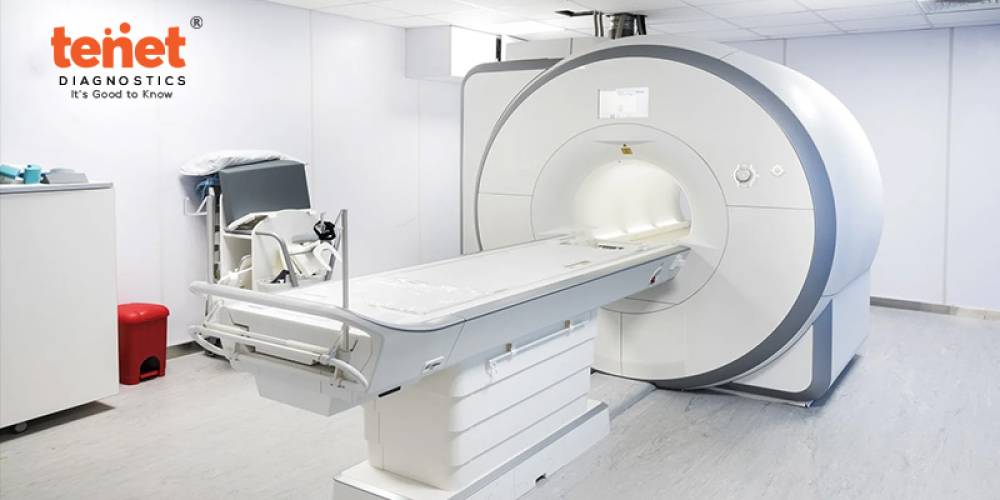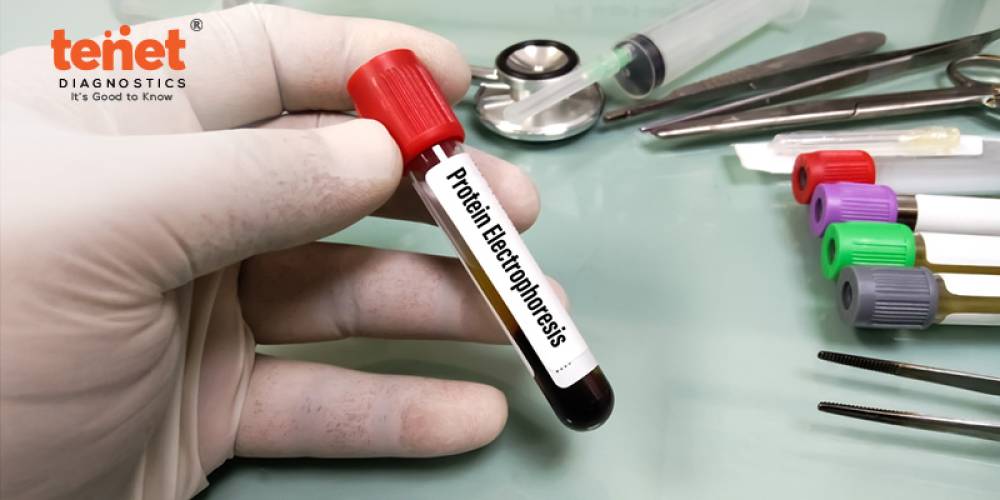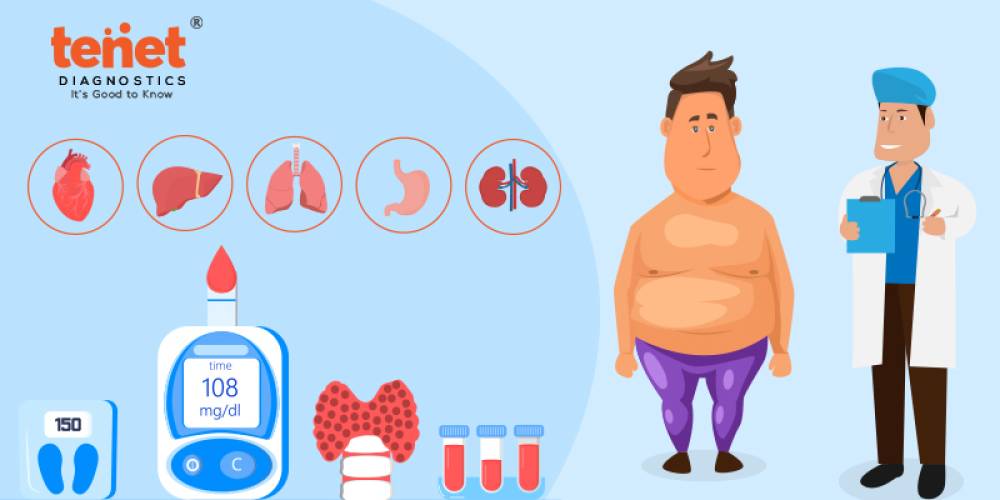Happiness comes from starting the wonderful journey of pregnancy. However, doctors frequently recommend the Antenatal Profile Test to verify both the mother-to-be and the precious baby growing within are healthy, so that the journey continues to go smoothly.
The ANC Profile Test assists medical professionals in assessing the health of the developing fetus as well as the expectant woman as part of parental healthcare. This all-inclusive bundle includes a variety of blood tests designed to identify possible dangers or difficulties and provide better treatment and support to pregnant women at an early stage.
The test assists in addressing hazards early and promotes a healthy pregnancy, albeit the timing and frequency of the test may differ depending on the specific circumstances.
What is the Antenatal Profile Test?
The nine months of pregnancy are a magnificent adventure. Your body has gone through a lot of physiological changes in these nine months. Additionally, pathological alterations are not unusual. Maternal screening in the early stages of pregnancy is essential to ensuring a safe and healthy pregnancy.
The antenatal blood test assesses the general health of the mother and unborn child during the first trimester of pregnancy. These tests are essential for the early detection, assessment, and diagnosis of several illnesses, diseases, and conditions that impact both the mother's general health and development and the baby's overall development. It involves the analysis of blood and urine to detect any pathological condition and treat it as soon as possible.
Tests that are carried out in the Antenatal Profile test list:
A combination of blood and urine testing called the Antenatal tests for pregnancy. It consists of several tests to assess any lifestyle disease, nutrient deficiency, or transmissible infection, whether it is new or pre-existing. Typically, it consists of some or all the following examinations:
- Complete blood count or CBC
- Blood grouping plus RH factor
- Urine routine examination test
- HIV 1 and 2 test
- Hepatitis B surface antigen test (HbsAg)
- Glucose – fasting, PP, and random (Sugar)
- Rapid plasma reagin or VDRL test for screening syphilis
- Hemoglobin electrophoresis (HPLC)
- Thyroid-stimulating hormone (TSH)
- Test for rubella infection
Who needs to undergo an Antenatal Care Profile test?
There are several reasons why an Antenatal test during pregnancy may be necessary while you are pregnant, while it is usually advised as a standard component of parental care. For example:
1. Regular Prenatal Care:
During pregnancy, the Antenatal Care Profile Test is frequently advised as a prenatal screening tool to check on the health of the expectant mother and unborn child, identify any potential risks or issues, and track the pregnancy's development.
2. Examine Health Risks:
This involves a variety of examinations that focus on the health of the expectant mother and the developing fetus. It assists in locating potential dangers to you or the unborn child. Although it doesn't provide a diagnosis right away, it does point out anomalies and support the necessity for more testing to get a precise diagnosis.
3. High-Risk Pregnancy:
Women who are pregnant at high risk, or who are at a higher risk of experiencing pregnancy-related difficulties because of advanced maternal age, previous miscarriages, repeated pregnancies, or a family history of genetic diseases, should get an ANC test. It aids in the detection, tracking, and, to some extent, management of those hazards.
4. Monitor Fetal Development:
The Antenatal Care Profile Blood Test aids in diagnosing anomalies or difficulties and monitoring fetal development, allowing for timely and appropriate management and treatment.
5. Track Overall Well-Being:
This ANC Test assists in assessing the mother-to-be's and the baby's overall well-being in addition to tracking the development of the child. It evaluates overall health and searches for alterations or issues.
Thus, you must get an ANC blood test recommended by your healthcare physician to ensure a safe and healthy pregnancy. Early identification and management of possible health issues can reduce complications and help you protect both your own health and the health of the unborn child.
Benefits of undergoing Antenatal Care Profile Test:
The following advantages are provided by the ANC Profile Blood Test:
1. Aids in Early Detection:
The ANC test assists in the early detection of possible health issues that could impact pregnancy or the health of your unborn child, allowing for the right management and early intervention.
2. Permit Personalized Care:
The ANC test results offer insightful information about health, empowering patients and medical professionals to make decisions that will improve patient care and condition management.
3. Track Fetal Development:
The ANC test aids in the detection of anomalies or birth defects, enabling the proper intervention to prevent or treat these problems with the least amount of negative effect on the health of the unborn child and expectant mother.
An ANC test guarantees improved health outcomes for both you and your unborn child and encourages a healthy pregnancy. It is crucial that you undergo all the tests and screenings your healthcare physician recommends if you have entered the pregnancy phase.
The procedure of ANC profile test:
The following basic steps are part of the ANC Blood Test procedure:
1. Regarding A Blood Test:
- To make it easier to find the vein, a phlebotomist may ask you to create a fist while they tie a band around your arm.
- After that, they'll use a disinfectant to clean the area.
- Using a syringe, a needle is inserted to draw blood.
- After drawing blood, the syringe will be taken out and the blood will be moved into the vial.
- The phlebotomist will then stop the bleeding by bandaging the pierced area.
- It will then be completed by removing the band.
- When drawing blood, there could be some little pain or discomfort associated with the procedure. It'll be done in five to ten minutes.
2. Regarding the Urine Test:
Along with instructions, your phlebotomist will provide you with a sterile container. Adhering to their recommendations is vital to guarantee adequate sample collection.
Risks associated with Antenatal Profile Tests:
It's an easy and secure test. Like any other blood test, there are hazards involved. These consist of:
- If the needle becomes contaminated, infection at the puncture site and appropriate sterilizing routine is not followed. But this is uncommon. Make sure the needle your phlebotomist is using is taken out of a sterile pack in front of you.
- Several punctures if the blood vessel is difficult to locate
- Prolonged bleeding at the puncture site: If you have a bleeding disorder or are on blood thinners, let your doctor know.
- lightheadedness brought on by severe bleeding or stress.
- Any little bruising and soreness that may develop will go away quickly on their own.
Final Words:
To sum up, the antenatal profile test is an essential tool for prenatal care that provides important information on the health of the expectant mother and her fetus. Healthcare professionals may ensure the best possible results for pregnant women by identifying and addressing any potential hazards or issues early on through thorough screening.
Expectant moms can protect their health and the health of their unborn child by being informed about the prenatal profile test's goals, preparation, process, and related costs. This test is essential for directing decisions and interventions related to prenatal care, ranging from blood parameter assessment to genetic abnormality and infectious illness screening.
Frequently Asked Questions:
1. What does an ANC profile test aim to achieve?
The following objectives are fulfilled by the ANC Profile Test:
- Evaluate the health of expecting women and fetuses.
- Determine any possible hazards or problems to your health.
- Assist the physician in starting the treatment right away.
2. How are ANC profile tests carried out?
Usually, a sample of blood or urine was needed. A phlebotomist will take a sample from your vein for the blood test, and they will give you instructions and a sterile container for the urine test. Following collection, both samples will be forwarded to the lab for analysis.
3. What aspects of an ANC profile test are there?
The ANC Profile Test encompasses a total of 65 parameters, including Blood Group ABO & Rh Typing, Glucose Random (BSR), Hemogram (CBC + ESR), HB HPLC, TSH 3rd Generation, Urine Routine & Microscopic Examination, VDRL, Viral Markers, Rapid Card, etc. Every factor matters when assessing the health of the expectant woman and the fetus.
4. What information about a person's health can an ANC profile test reveal?
Examining the health of the expectant mother and the developing fetus inside her can help detect issues such as gestational diabetes, syphilis, HIV, viral infections, and other difficulties.
5. Does the ANC Profile Test come with any risks?
No, an ANC profile test does not generally carry any dangers. There can be some pain or discomfort during the blood drawing process, but this will pass eventually. One may contract the virus in extremely uncommon circumstances. Reporting the pain to your healthcare professional and seeking prompt treatment is crucial if it persists and you have any additional symptoms.







